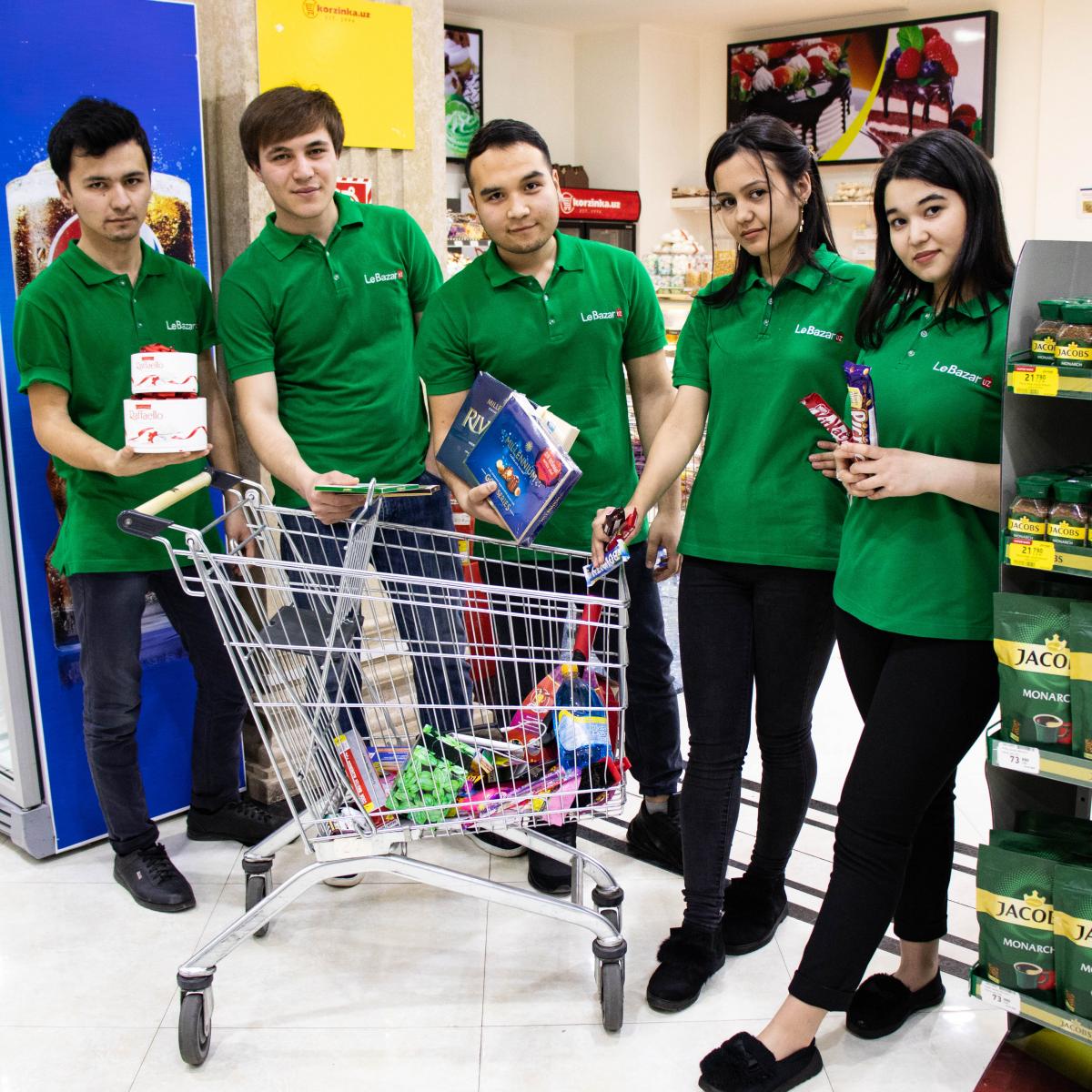“We were able to achieve all of our goals. Now cities outside the capital can also use our services. We are also planning to open soon in the cities of Namangan and Navoi.”
- Zokhid Ulmasbaev, co-founder of LeBazar

“Six years ago, when everyone was going to bazaars and stores, carrying heavy bags, standing in lines at the cash registers, standing in traffic jams for hours, we decided to open the first LeBazar delivery service in Tashkent,” says Zokhid Ulmasbaev, co-founder of LeBazar. In 2016, Mr. Ulmasbaev established LeBazar, which is an online grocery delivery service, in partnership with Uzbekistan’s Korzinka supermarket chain.
The convenience of LeBazar’s services appeal to a wide range of customers, including mothers on maternity leave, busy office workers, expatriates and retirees. Orders can be placed from anywhere in the world, allowing customers to place orders for their relatives, friends, and colleagues living in Uzbekistan.
“I have been a customer of the LeBazar service for three years,” says frequent client Malika. “I have two small children. I live in Tashkent, and my husband temporarily works in the United States. Everyone knows how difficult it is to look after children alone, especially when there are two of them. It is not always possible to go to the store to buy groceries or carry heavy bags. LeBazar always helps me out. Every week my husband orders groceries for us by paying with his Visa card while he is overseas.”
For the last several years, the company has received requests from across Uzbekistan to offer their delivery services in other regions of the country. Zokhid says that the pandemic finally led the company to pursue a larger footprint. “We thought, why not try to expand the boundaries of our service and help people not only in the capital, but also in the regions. In 2021, during a difficult pandemic time, when people needed our help, we made the decision and started working on the details.”
Based on an analysis of the market, LeBazar decided to expand its services to Bukhara, Samarkand, Andijan, Fergana, and Kokand.
The expansion has helped Malika and her husband share the convenience of grocery delivery with their relatives in Bukhara. “This year our wish came true,” she says. “Now we order groceries for our parents, and they feel our care. Now I recommend this service to all my acquaintances and relatives. The first delivery is free. It is very convenient.”
Opening its services to other regions of the country presented the company with logistical challenges. The LeBazar team negotiated with partners, recruited new employees, organized staff training, redesigned a mobile application and website, prepared advertising, and much more. USAID’s Future Growth Initiative provided international experts to advise LeBazar on ways to optimize operations. The company also introduced a subscription-based service for customer convenience; customers can now save up to 45% on shipping by purchasing one-month, three-month, or six-month vouchers.
Based on expert recommendations, LeBazar introduced a new online payment system to provide clients with maximum flexibility. “Previously, we billed clients at the time of ordering, and if items weren’t in stock, we refunded the customer’s money in the form of points to their LeBazar account,” says Zokhid. “Now we put a ‘hold’ on a customer’s bank card and only withdraw the actual amount when the order is shipped.”
“We were able to achieve all of our goals,” he says. “Now cities outside the capital can also use our services. We are also planning to open soon in the cities of Namangan and Navoi.”
Thanks to USAID’s assistance, LeBazar services were used by 150,000 customers from 65 countries in 2021. In 2022, the company plans to increase the customer base fivefold.
“We plan to introduce artificial intelligence and machine learning,” says Zokhid. “This will help a customer shop faster and more effectively, enjoy the process, and ultimately prefer online shopping. I think that e-commerce will gain a lot of momentum. In this regard, Uzbekistan still has room to grow.”
